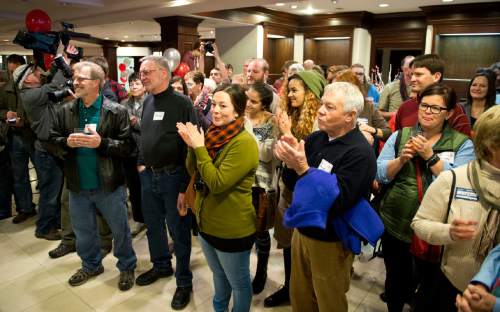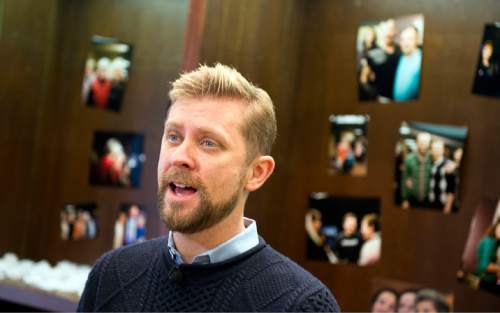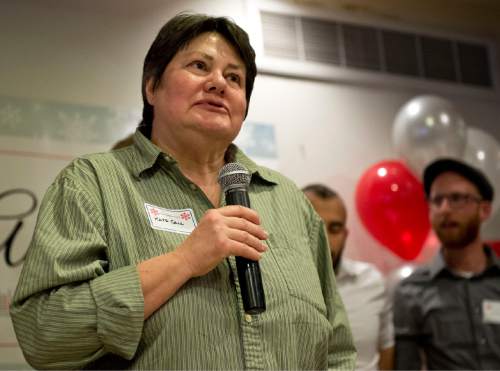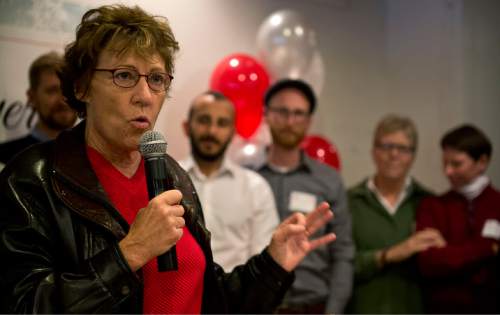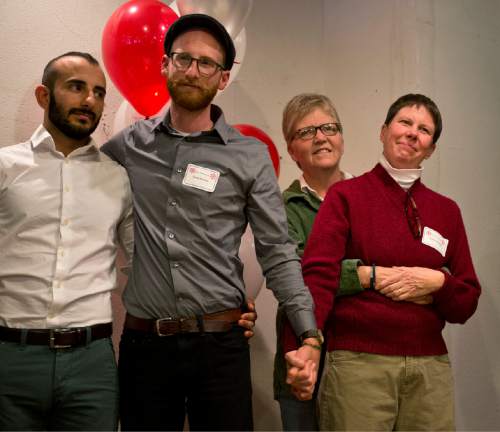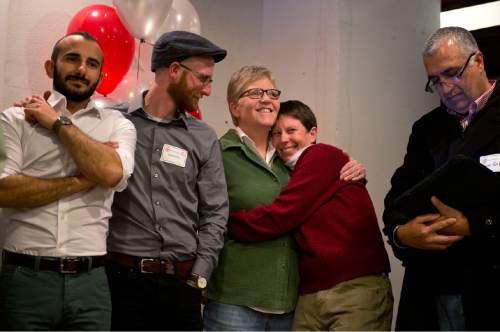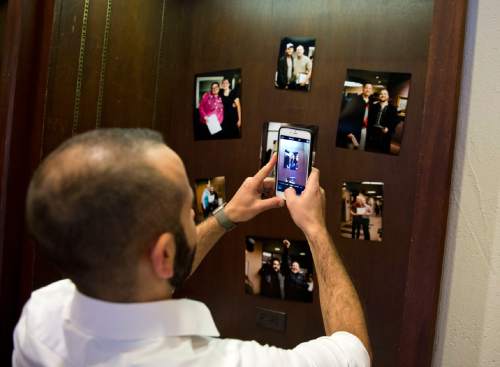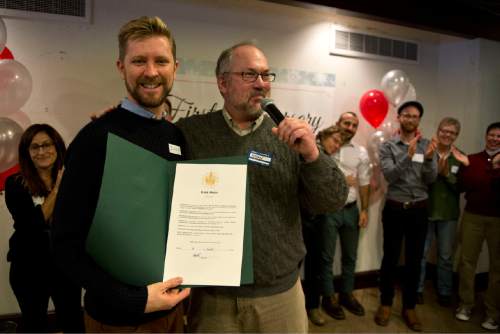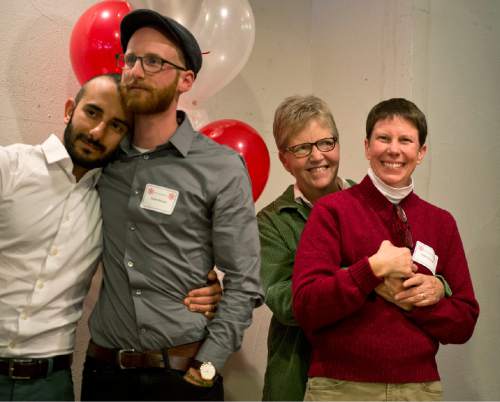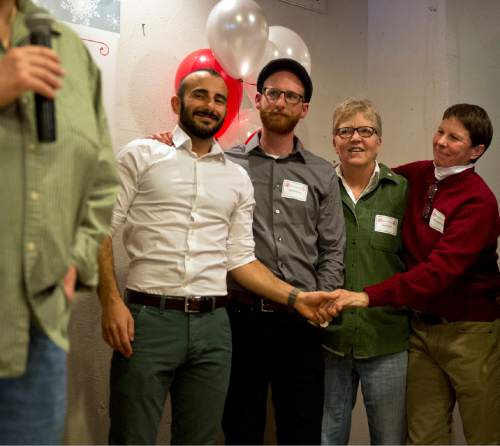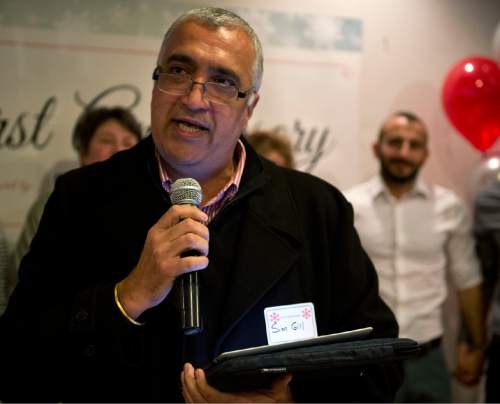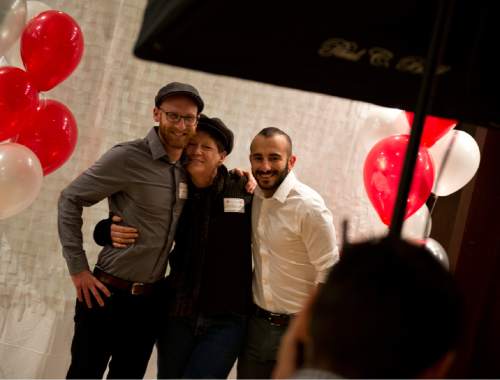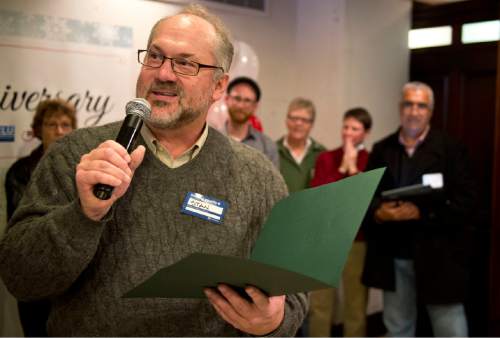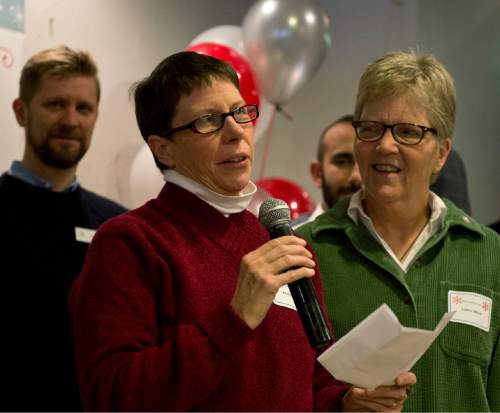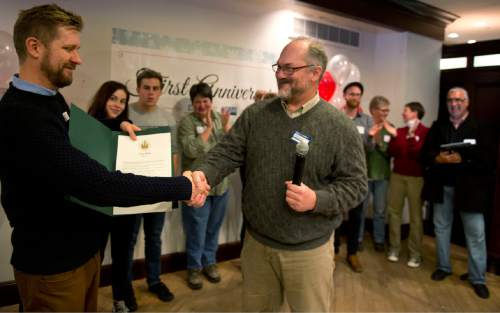This is an archived article that was published on sltrib.com in 2014, and information in the article may be outdated. It is provided only for personal research purposes and may not be reprinted.
There were kisses, hugs, tears, speeches and champagne or punch toasts Saturday to celebrate the one-year anniversary of the decision that legalized same-sex marriage in Utah.
But amid the bubbly atmosphere of the Salt Lake City party that marked the Dec. 20, 2013, decision by U.S. District Judge Robert Shelby ran another theme: There's more work to be done.
The Trolley Square event put on by Equality Utah, Utah Pride and the Utah chapter of the American Civil Liberties Union, brought together a sometime boisterous crowd to mark the decision which touched off a scramble to the Salt Lake County Clerk's Office for licenses with vows recited in crowded rooms and hallways.
Shelby's ruling that the state ban on same-sex marriage violated the U.S. Constitution — called "historic" and "brave" by party goers — touched off a series of judicial decisions that more than doubled the number of states where such unions are legal.
Kate Call, one of the plaintiffs in the case, said the lawsuit that led to Shelby's decision began with a notice of a meeting in a comment on The Salt Lake Tribune's website.
But the small group that wanted to challenge the Utah ban was discouraged by national groups that feared an adverse decision here would have a negative effect on their efforts elsewhere, she said.
"But we knew Utah was the greatest place in the United States for experiments in marriage," Call said, referring to the historic practice of polygamy here.
Attorney Peggy A. Tomsic who along with James E. Magleby brought the suit, said she grew up in Utah and came out "when it was dangerous and people hated us." Contrast that to the courthouse of scene of marriages broadcast on television where "what people saw was love, compassion and caring and a desire to have what everyone else in this country wants."
While Tomsic said while she was shocked when the decision was handed down Dec. 20 of last year, "I wasn't shocked that at some point in the legal process we were going to get a judge who had the intellectual honesty and backbone to look at the United States Constitution and say, 'You know what, it applies to everyone. I don't care what your sexual orientation is.' "
Troy Williams, executive director of Equality Utah, called "amazing" the fact that same-sex couples can now be legally married in Utah, but said there is more work to be done.
"Hypothetically you can still get fired from your job or evicted from your home because of your sexual orientation or gender identity," he said.
Advocates will be pushing bills at the Legislature next year to ban discrimination in the workplace, in housing and in retail spaces, Williams said.
Laurie Wood, another plaintiff in the lawsuit, said she had found a real change in Utah since the year-ago decision.
The experience of Wood and her wife, Kody Partridge, "has been such love and acceptance and just good will," Wood said. "I really do think it has."
Saturday's attendees included Moudi Sbeity and his partner Derek Kitchen — two of the six plaintiffs in the lawsuit that lead to same-sex marriage in Utah. With his arms wrapped around Sbeity, Kitchen said the two have set a marriage date of May 24 at the Gallivan Center in downtown Salt Lake City.
They chose the public venue to event becomes a community celebration of the success of the lawsuit of which they also were plaintiffs, he told the crowd.
To mark the year anniversary of the court ruling, Salt Lake City Mayor Ralph Becker declared Saturday as "Salt Lake City's Freedom to Marry Day."


